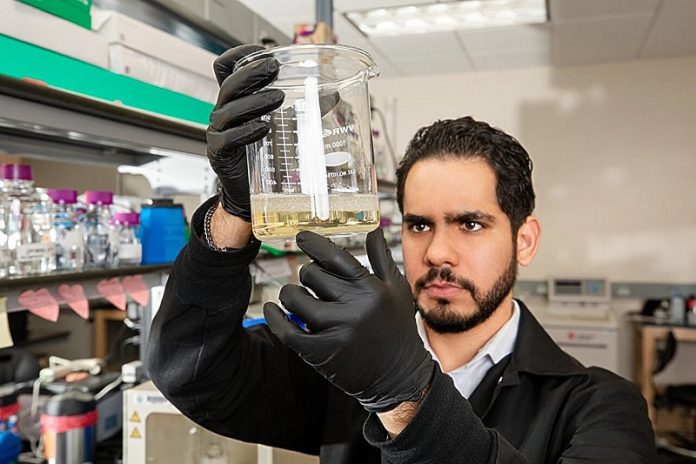
Every year, fracking in the Permian Basin produces an enormous amount of wastewater, around 168 billion gallons, posing a significant environmental challenge.
This water is tough to clean due to its complex chemical makeup, making it both costly and difficult to manage.
However, a groundbreaking study from The University of Texas at El Paso (UTEP) may have found a solution through an unexpected source: viruses.
Published in the journal Water, the research led by Ramón Antonio Sánchez, a doctoral student in chemistry at UTEP, introduces the use of bacteriophages as a novel method to treat fracking wastewater.
Bacteriophages are viruses that specifically target and destroy bacteria, making them an effective and rapid tool for wastewater treatment.
These viruses are highly selective, usually attacking only one type of bacteria.
This specificity can be harnessed to combat harmful bacteria in wastewater, such as Pseudomonas aeruginosa and Bacillus megaterium, commonly found in the water used in oil and gas extraction. P. aeruginosa can corrode metal infrastructure like pipelines, while B. megaterium breaks down hydrocarbons, which are organic compounds that are primarily found in oil.
Sánchez and his team, including his collaborator Zacariah Hildenbrand, Ph.D., a UTEP alum, were inspired by the success of bacteriophages in medical settings, where they are used to treat infections resistant to multiple drugs.
Bacteriophages work by attaching to specific receptors on the surface of bacteria and can evolve with them, ensuring they can continue to combat bacterial resistance effectively.
In the lab, the team successfully used bacteriophages to deactivate both P. aeruginosa and B. megaterium. The next steps for Sánchez include testing this method in real-world settings and expanding the range of bacteria that can be targeted with bacteriophages.
While this innovative approach offers significant promise, there are challenges ahead.
The specificity of bacteriophages means a diverse array of them is needed to target different bacteria, and currently, there aren’t many commercially available. Additionally, other types of bacteria in produced water still need to be addressed.
Ricardo Bernal, Ph.D., an associate professor at UTEP and Sánchez’s doctoral advisor, highlighted the impact of the research.
He praised Sánchez’s achievements and the potential of this work to not only manage environmental issues but also to improve the sustainability practices of the oil and gas industry.
This breakthrough has the potential to revolutionize how we handle the vast amounts of wastewater from fracking, turning a major environmental problem into an opportunity for resource recovery and reuse.
Source: KSR.



